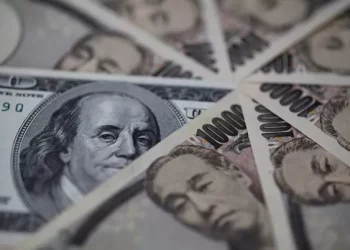The Singapore dollar, denoted as SGD and symbolized as “$” or “S$”, is the official currency of Singapore. Introduced in 1967, the SGD has become a critical component of Singapore’s robust financial system. It is managed and regulated by the Monetary Authority of Singapore (MAS), which plays a crucial role in ensuring monetary stability and economic growth. The Singapore dollar is used both domestically and internationally, reflecting Singapore’s position as a major global financial hub.
The SGD’s history is closely tied to Singapore’s evolution from a British colony to an independent nation. Prior to the introduction of the SGD, Singapore used various currencies, including the Straits dollar and the Malayan dollar. The introduction of the SGD was part of Singapore’s efforts to establish its own economic identity and financial sovereignty. Over the decades, the SGD has become one of the strongest and most stable currencies in the region, thanks to prudent economic policies and effective monetary management.
The Backing of the Singapore Dollar
Monetary Authority of Singapore (MAS)
The Monetary Authority of Singapore (MAS) is the central bank and financial regulatory authority responsible for the Singapore dollar. The MAS ensures the stability of the SGD through various monetary policies and regulatory measures. Its role includes managing the currency’s value, overseeing financial institutions, and implementing monetary policies that promote economic stability and growth.
Exchange Rate Policy
Singapore employs a managed float exchange rate system for the SGD. Unlike fixed exchange rate systems where a currency’s value is pegged to another currency or a basket of currencies, the SGD’s value is allowed to fluctuate within an undisclosed policy band. The MAS intervenes in the foreign exchange market as needed to ensure that the SGD remains within its policy band, thereby promoting economic stability and preventing excessive volatility.
Currency Reserves
Singapore maintains substantial foreign exchange reserves to support the SGD and ensure financial stability. These reserves are held in various forms, including foreign currencies, gold, and other assets. The size and composition of Singapore’s reserves are strategically managed to provide a buffer against economic shocks and to maintain confidence in the SGD. The reserves play a critical role in supporting the SGD’s value, especially in times of economic uncertainty or market stress.
Government Bonds and Fiscal Policy
The Singapore government issues bonds to raise funds for various public projects and investments. These government bonds are a key component of the financial system and contribute to the backing of the SGD. By maintaining a robust fiscal policy and managing public debt effectively, the Singapore government supports confidence in the SGD and ensures that the currency remains stable and reliable.
Economic Stability and Growth
The strength and stability of the SGD are also supported by Singapore’s overall economic health. As a major global financial center, Singapore has a diverse and resilient economy characterized by strong trade, investment, and financial services sectors. The country’s economic policies, including those related to trade, investment, and labor markets, contribute to a favorable environment for the SGD. The economic stability and growth of Singapore enhance confidence in the SGD and support its value in the global market.
See Also: Can I Use USD in Singapore?
Financial Sector Resilience
Singapore’s financial sector is highly developed and resilient, further underpinning the SGD. The country’s financial institutions are well-regulated and have strong capital bases, ensuring their ability to withstand economic shocks and financial stress. The MAS’s regulatory framework promotes transparency, risk management, and financial stability, contributing to the confidence in the SGD and its stability.
Factors Influencing the Singapore Dollar
Global Economic Conditions
Global economic conditions play a significant role in influencing the value of the SGD. As an open and trade-dependent economy, Singapore is affected by international economic trends, including changes in global trade patterns, economic growth rates, and geopolitical events. The MAS closely monitors global economic conditions and adjusts its monetary policy and interventions to mitigate any adverse impacts on the SGD.
Trade Balance and Current Account
Singapore’s trade balance and current account are crucial factors affecting the SGD. The country has historically maintained a strong trade surplus, which supports demand for the SGD and contributes to its stability. A positive current account balance reflects a healthy trade environment and investment inflows, bolstering confidence in the SGD.
Interest Rates and Monetary Policy
Interest rates set by the MAS have a direct impact on the value of the SGD. Changes in interest rates influence capital flows, investment decisions, and borrowing costs, which in turn affect the SGD’s value. The MAS adjusts interest rates and implements monetary policy measures to ensure that the SGD remains stable and to support economic growth.
Inflation and Price Stability
Inflation and price stability are critical to maintaining the value of the SGD. The MAS aims to keep inflation within a target range to ensure price stability and protect the purchasing power of the SGD. High inflation can erode the value of the currency, while stable prices contribute to confidence in the SGD and its reliability.
Investor Sentiment and Speculation
Investor sentiment and speculative activities can influence the value of the SGD. Market perceptions, geopolitical events, and financial market trends can lead to fluctuations in the SGD’s value. The MAS monitors investor sentiment and market developments to manage volatility and maintain stability in the SGD.
The Role of the Singapore Dollar in the Global Economy
International Trade and Investment
The SGD plays a significant role in international trade and investment. Singapore’s status as a major trading hub means that the SGD is frequently used in cross-border transactions and financial activities. The currency is widely traded in global foreign exchange markets and is accepted in various international financial transactions.
Regional and Global Financial Markets
The SGD is an important currency in regional and global financial markets. It is used as a benchmark currency for various financial instruments, including bonds and derivatives. Singapore’s financial markets are well-integrated with global markets, and the SGD’s stability and liquidity make it an attractive currency for investors and financial institutions.
Currency Reserves and Foreign Exchange Management
Many central banks and financial institutions hold SGD as part of their foreign exchange reserves. The currency’s stability and liquidity make it a valuable component of international reserves. Singapore’s management of its foreign exchange reserves and its role as a global financial center enhance the SGD’s standing in the international financial system.
Regional Economic Integration
Singapore’s participation in regional economic integration and trade agreements further supports the SGD. The currency is used in various regional trade agreements and financial arrangements, reflecting its importance in the Asia-Pacific region. Singapore’s economic policies and trade relationships contribute to the SGD’s role in regional and global economic activities.
Conclusion
The Singapore dollar (SGD) is backed by a combination of factors that contribute to its stability and strength. The Monetary Authority of Singapore (MAS) plays a central role in managing the currency through monetary policies and interventions. Singapore’s substantial foreign exchange reserves, effective fiscal policies, and robust economic growth further support the SGD. The resilience of Singapore’s financial sector and its role in global trade and finance also contribute to the currency’s stability. Understanding the factors that back the SGD provides insight into its role in the global economy and its importance as a stable and reliable currency.
Related Topics:
























